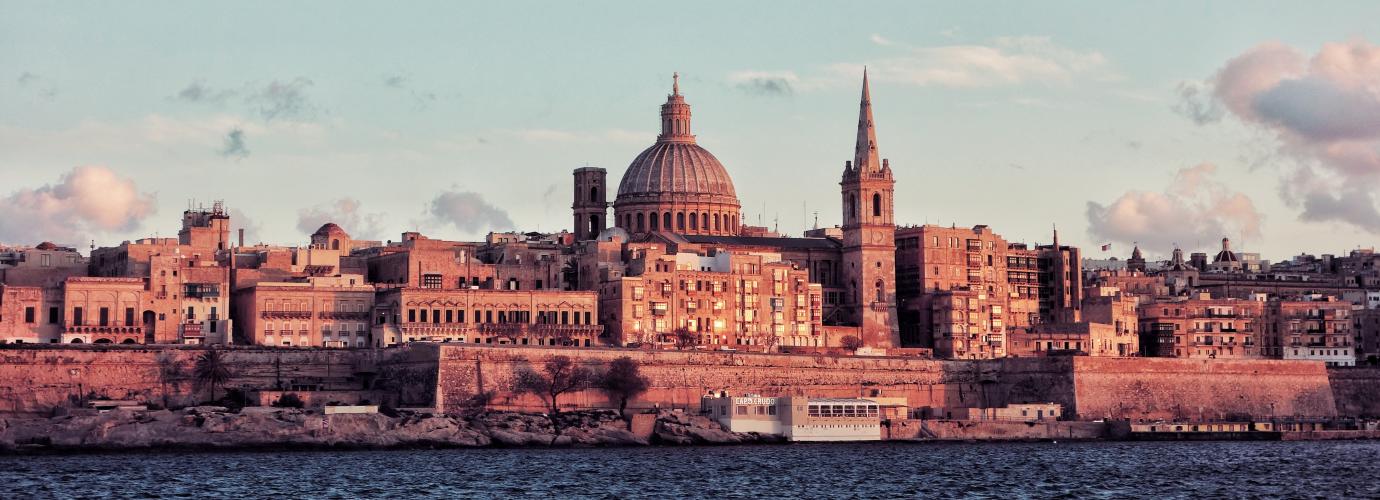Malta is a democratic republic based on the principle of separation of powers:
• The Parliament is the constitutional legislative body in Malta. The parliament is unicameral, with a democratically elected House of Representatives, in its 14th Legislature (2022-) and composed of 79 members, and the President of Malta, the constitutional Head of State.
• The judicial branch comprises the law courts with the Constitutional Court as the highest court, which, among others, deals with appeals related to the constitution, human rights and integrity of laws.
• Executive authority is vested in the President of Malta with the general direction and control of the Government of Malta remaining with the Prime Minister of Malta, who is the Head of Government and the Cabinet. The cabinet represents the executive power which is currently composed of the prime minister, 18 ministers and 4 parliamentary secretaries. Public administration is focused on Central Government, comprising nineteen ministries which include the office of the prime minister. Some aspects of public administration are decentralised through Local government which is represented by 68 local councils and 6 regional councils.
The Ministry for Education, Sport, Youth, Research and Innovation (MEYR) is headed by Hon. Dr Clifton Grima, assisted by the Parliamentary Secretary for Youth, Research and Innovation Hon. Dr Keith Azzopardi. Being responsible for both policymaking in education and the provision of state-funded education in accordance with the Constitution of Malta and the Education Acts Chapters 327 and 605 of the Laws of Malta, MEYR’s objective is to provide present and future generations with the necessary skills and talents for citizenship and employability, in the 21st century and beyond. MEYR is responsible for education as a lifelong endeavour, through which people develop their personal and social potential and acquire the appropriate knowledge, key skills, competences and attitudes through a value-oriented formation including equity, social justice, diversity and inclusivity. To carry out this function, MEYR is composed of departments/directorates and a number of entities (state agencies and authorities). These include the Department for Educational Services, which is tasked with State School provision, and the Department for Curriculum, Lifelong Learning and Employability, which is tasked with setting curricula for State and non-State schools, assessments and skills uptake through the lifecourse. Education-related entities include the Institute for Education, which provides initial training and continuous professional development to educators, and the National Literacy Agency, which supports the Government in matters relating to literacy. Additionally, the Malta Further and Higher Education Authority (MHEA) is the national authority which regulates further and higher educational institutions and education providers. Its mission is to “foster the development and achievement of excellence in further and higher education in Malta through research, effective licensing, accreditation, quality assurance, and recognition of qualifications established under the Malta Qualifications Framework”.
MEYR’s portfolio also includes youth and sport which is represented by the national youth agency Aġenzija Żgħażagħ and the national sports agency SportMalta. The aim of Aġenzija Żgħażagħ, is to mainstream youth related issues and further develop youth services, providing a coherent, cohesive and unified Government approach to addressing the needs and aspirations of young people. It enables further investment in young people and helps them realise their potential. Through SportMalta, Malta is putting sports high on the national agenda as investment in sport is regarded as investment in society. SportMalta aims to inspire people and transform the nation through sport and through innovative, fun and meaningful sporting experiences. It organises sport programmes and academies as part of its educational functions.
Apart from the Ministry for Education, Youth, Sport, Research and Innovation, other Ministries are also involved in education provision:
The Ministry for Finance and Employment which, among others, sets the budget of all ministries, including that for Education. It includes the national employment agency Jobsplus, which offers a range of courses, in line with its active labour market policies, and manages the Free Childcare Scheme.
The Ministry for Social Policy and Children’s Rights provides parents with children’s allowance benefit, including for children between 0-16 years of age and extends for those children between16 and 21 years of age who either are in full-time education without receiving a stipend or registering for work for the first time. The ministry follows the National Action Plan for Child Guarantee 2022-2030, for which government has pledged €145m to improve the quality of children’s life, particularly that of vulnerable children. It includes measures to prevent Early School Leaving; Seeking to Ensure Inclusive Education Throughout Childhood; Addressing Students’ Basic Necessities for the Provision of Quality Education in Schools; Addressing Equal Access To Digital Connectivity, Educational Content Online, and Increased Digital Skills. The National Action Plan includes Scheme 9, aimed to help children from economically disadvantaged backgrounds, by providing free-of-charge uniforms, lunch, photocopies and extracurricular activities organised in both state and non-state schools. The number of vulnerable school children benefitting from the scheme reached 2,723 in 2021.
The Ministry for Tourism establishes and executes the tourism policy. It incorporates the Institute for Tourism Studies (ITS), which offers post-secondary and tertiary programmes of study ranging from Foundation Programme (MQF Level 2) to Masters Degree Programmes (MQF Level 7) level. ITS’ programmes are based both on theoretical knowledge and extensive hands-on experience throughout the ITS training restaurants, kitchens, and hospitality laboratories.
Local and regional councils liaise with MEYR’s Directorate for Research, Lifelong Learning and Employability to organise second-chance and vocational courses for people who have completed compulsory education within their communities. They also organise a variety own-initiative courses including crafts, languages, science and IT, through national, EU funds and Norwegian Funds Small Grant Scheme.

